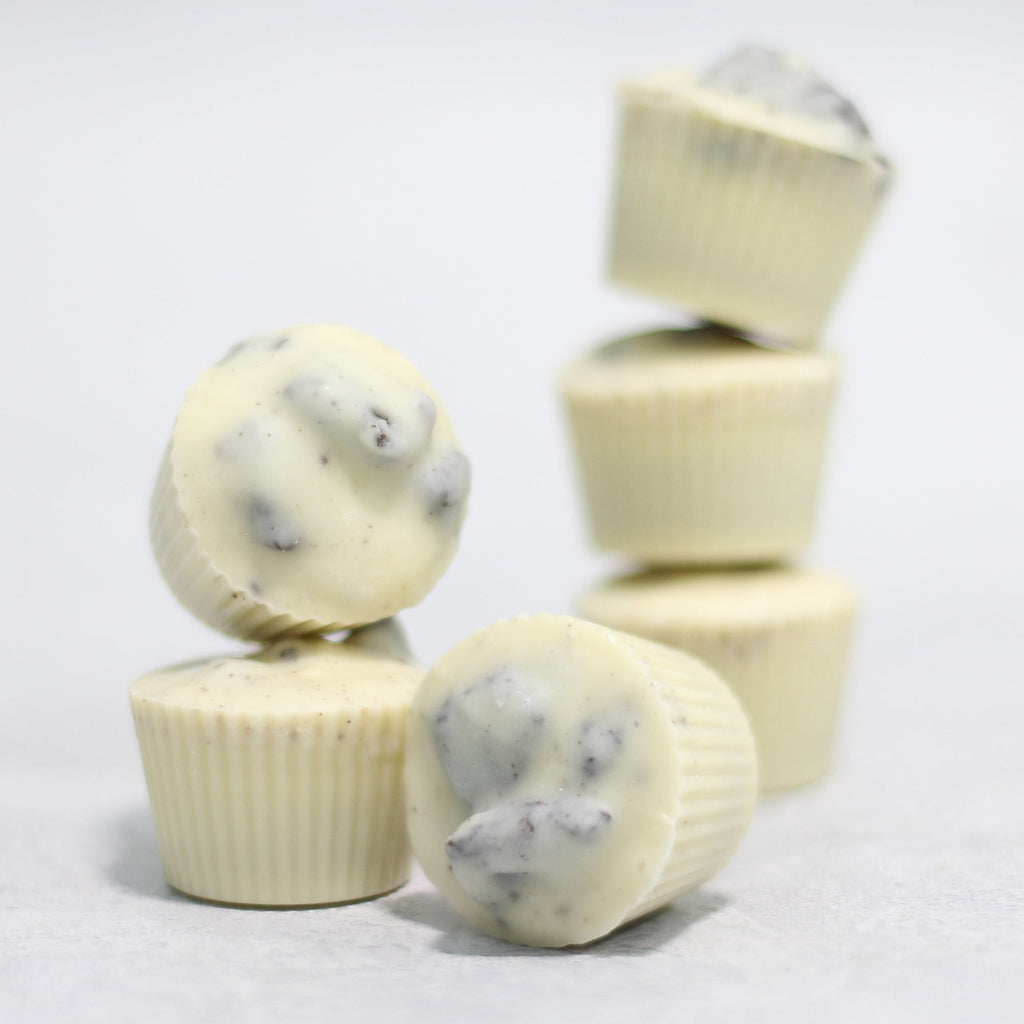For many, chocolate is a non-negotiable indulgence, a mood-lifter, a treat that transcends dietary preferences. The question, Is chocolate Vegan, suggests that it is commonly believed to be so. Generally in its purest form, cocoa beans, cocoa butter and sugar yes it is. That said this would apply to the high quality dark chocolate. For many the traditional favourite milk chocolate where dairy milk is added, is what makes chocolate non vegan. With the rise of veganism, the demand for plant-based chocolate has soared, and thankfully, the market has responded with a delightful array of options. Pure, high-quality dark chocolate, at its core, is often naturally vegan, made simply from cocoa beans, cocoa butter, and sugar. However, the journey from bean to bar can introduce a surprising number of animal-derived ingredients, leaving many a vegan chocolate lover unintentionally consuming non-vegan products.
Navigating ingredient lists can feel like detective work, especially when faced with ambiguous terms or unfamiliar E-numbers. To help you make informed choices and keep your chocolate consumption cruelty-free, here are five ingredients that make chocolate not vegan.
1. Milk and Milk Derivatives (The Obvious Culprit)
This is perhaps the most straightforward non-vegan chocolate ingredient. Traditional milk chocolate, by its very definition, contains milk solids. White chocolate, too, relies heavily on milk products for its creamy texture and flavour. Therefore milk is a sure-fire answer as to what makes chocolate non vegan. Having determined that milk is a prime ingredient that makes chocolate non vegan, its worth knowing that milk comes in many forms. So, it's not just "milk" you need to look out for. Dairy can hide under various names:
-
Milk Solids/Milk Powder: These are concentrated milk components.
-
Whey: The liquid remaining after milk has been curdled and strained, often used in processed foods, including some chocolates, for texture and protein.
-
Casein: The main protein found in milk, sometimes used as a binding agent or for its textural properties.
-
Lactose: Milk sugar, which can be present in chocolates that aren't overtly "milky."
-
Butterfat/Milk Fat: Clarified butter or the fatty component of milk, added for richness and mouthfeel.
These ingredients are ubiquitous in milk and white chocolates and can even sneak into some darker chocolates, particularly those aiming for a creamier, less bitter profile or those produced on shared equipment where cross-contamination is a risk (though this is usually indicated by a "may contain milk" advisory, which is an allergen warning rather than an intentional ingredient). Always check the ingredients list meticulously. Thankfully, the UK market boasts many delicious vegan "milk" chocolates made with plant-based alternatives like oat, almond, soy, rice, or hazelnut milk.
2. Honey (Nature's Sweetener, But Not Vegan)
Honey is a natural sweetener produced by bees for their own consumption. For vegans, who avoid the exploitation of animals in all forms, honey is not considered a vegan ingredient. It's sometimes used in chocolate to add a distinct flavour, particularly in artisanal or "natural" chocolate bars, or in filled chocolates and caramels. Is chocolate vegan? Not if it contains honey, due to that single fact, honey is derived from animals, in this case bees. So honey can be one of the ingredients that makes chocolate not vegan.
While some who follow a plant-based diet might make personal exceptions for honey, strict vegans will avoid it. Check ingredient lists for "honey," especially in chocolates with floral notes, nougat, or those marketed as "naturally sweetened." Maple syrup, agave nectar, or other plant-derived syrups are common vegan alternatives chocolatiers might use.
3. Shellac (Confectioner's Glaze - E904)
This one is a less obvious culprit. Shellac, also known as confectioner's glaze or E904, is a resin secreted by the female lac bug. It's used to give a shiny, protective coating to many sweets, including some chocolates, chocolate-coated nuts, and sprinkles. Think of those perfectly glossy chocolate buttons or beans – shellac might be responsible. This is a less well known ingredient. When considering is chocolate vegan? If it contains shellac, a non vegan chocolate ingredient the answer is no.
Because it's derived from an insect, shellac is not vegan. Identifying it can be tricky as it's often listed as "confectioner's glaze," "resinous glaze," or simply by its E-number, E904. If a chocolate product has a particularly high-gloss, durable shine, it's worth double-checking the ingredients for shellac. Vegan-friendly glazing agents include plant-based waxes like carnauba wax.
4. Carmine (Cochineal Extract - E120)
Carmine, also known as cochineal, cochineal extract, crimson lake, natural red 4, or E120, is a vibrant red food colouring derived from crushed cochineal insects, which are a type of scale insect. While less common in plain chocolate bars, carmine can be found in some coloured chocolate coatings, decorative elements on chocolates, or in fillings like cherry or raspberry creams where a bright red hue is desired.
This is a clear no-go for vegans. Always scrutinise the ingredients list for these names or E120 if you're eyeing up brightly coloured chocolates or those with red-hued fillings. Plant-based colourings like beetroot powder or fruit and vegetable extracts offer vegan alternatives.
5. Certain E-Numbers & Processing Aids (The Hidden Surprises)
Beyond the more obvious animal products, a few other E-numbers and processing aids can make chocolate non-vegan. While not always present, they are worth being aware of:
-
Lecithin (E322) (Sometimes): Lecithin is a common emulsifier in chocolate, helping to create a smooth texture. It pays to be vigilant as this might be the non vegan chocolate ingredient in your next bar. It can be derived from soy (vegan), sunflower (vegan), or egg yolks (not vegan). Most labels in the UK will specify "soya lecithin" or "sunflower lecithin" if it's plant-based. If it just says "lecithin," there's a small chance it could be egg-derived, though this is less common in plain chocolate. Vegan-certified products will always use plant-based lecithin.
-
Another common ingredient that makes chocolate not vegan, is often sugar, or in this case Refined Sugar (Bone Char): While the sugar itself is plant-derived, some white sugar, particularly in North America, is processed using bone char (charred animal bones) to decolourise it. In the UK and Europe, sugar beet is more common, and bone char is less prevalent in sugar processing. However, for very strict vegans or when consuming imported chocolates (especially from the US), this can be a concern. Looking for chocolates made with unrefined sugar, organic sugar (which typically isn't processed with bone char), or those with vegan certification can alleviate this worry.
-
Vitamin D3 (Sometimes): Some fortified foods, though less common in chocolate, might use Vitamin D3 derived from lanolin (sheep's wool). Vitamin D2 is typically vegan. This is more of a concern for fortified foods generally than specifically for most chocolates, but it's a hidden animal derivative to be aware of in the broader food landscape.
Navigating the Chocolate Aisle with Confidence
The good news is that the vegan chocolate market is booming. Many brands now explicitly label their products as vegan, and certifications like The Vegan Society's trademark (the sunflower symbol) or V-Label offer an extra layer of assurance for UK consumers.
When in doubt:
-
Read the ingredients list carefully. This is your best tool.
-
Look for vegan certifications. These products have been vetted.
-
Choose dark chocolate with a high cocoa percentage and minimal ingredients. These are often "accidentally vegan."
-
Don't be afraid to contact the manufacturer if you're unsure about an ingredient.
One way you can be certain you are not being given non vegan chocolate ingredients is to buy from a leader in the filed of vegan chocolate making. That’s where Kakoa come in with an outstanding range of vegan chocolates. Is chocolate vegan, well it can be and it can be exceedingly good too. Even in milk form when that is derived from non dairy products such as oat and rice milks for example. As we know, dairy can be what makes chocolate non vegan.
-
Dad is always there when you need him; whether it's fixing things or being the designated driver, what better way to say thank you than with twenty four of the finest vegan chocolates. This Father's Day treat Dad to an array of luxurious plant based chocolate, made using our unique oat and rice milk recipe. This box is a great vegan gift and you can be sure that it doesn’t contain non vegan chocolate ingredients.
-
Vegan Iconic 48 Chocolate Collection
Our biggest chocolate box, passionately made with 100% vegan ingredients and our incredibly creamy oat milk chocolate. We have the largest selection of plant based chocolate flavours in the UK and this box contains the lot…18 flavours to be precise.
A truly epic collection of chocolate, including our Great Taste Award winning peanut butter truffle, our vegan milk chocolate salted caramel and our wonderfully zingy dark chocolate orange truffle.
There we are then, what makes chocolate vegan, is chocolate vegan, non vegan chocolate ingredients and ingredients that make chocolate not vegan. Comprehensively answered so you can be confident when you buy your next delicious box of chocolates.
With a little vigilance, you can continue to enjoy the rich, decadent world of chocolate while staying true to your vegan principles. The abundance of delicious, consciously made vegan chocolate means you never have to miss out.



